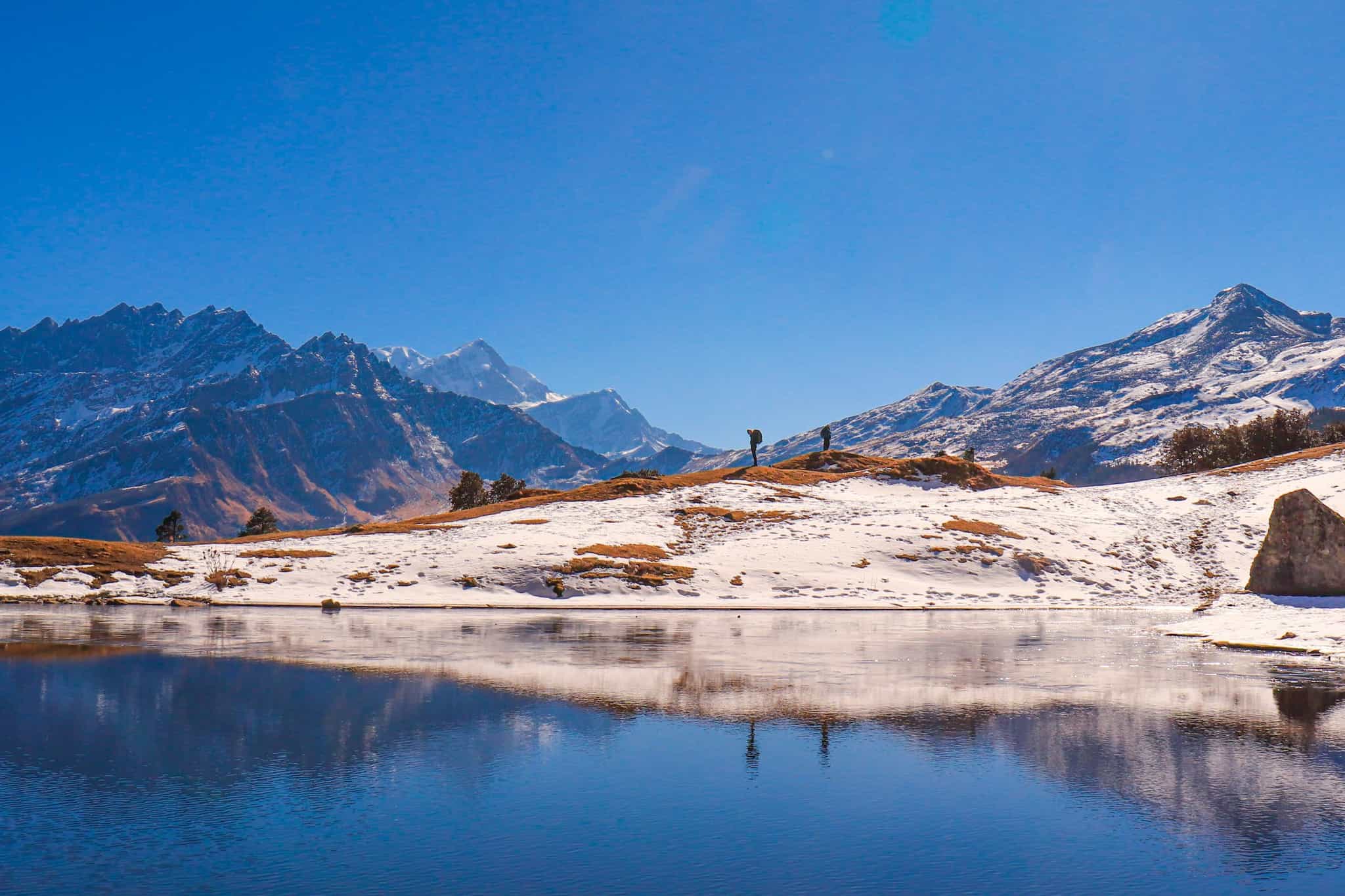
Trek the Indian Himalayas
Follow the Curzon Trail over the Kuari Pass, a spectacular route through a little-visited corner of the towering Himalayas
What's Included?
Activities & Certified Guides
All itinerary activities with expert, local, English-speaking trekking guideAll accommodation
4 nights in locally-run hotels and 6 nights wild campingMeals
All breakfasts, 6 lunches and 8 dinnersTransfers
A group transfer to and from the airport and everything in between, including train journeys in air-conditioned cabinsPermits
All entrance fees and permits are taken care ofSmall Like-minded Groups
Solo-friendly by design, join our small n’ sociable groups of up to 14 like-minded, active and outdoorsy people…
…
What's it like?









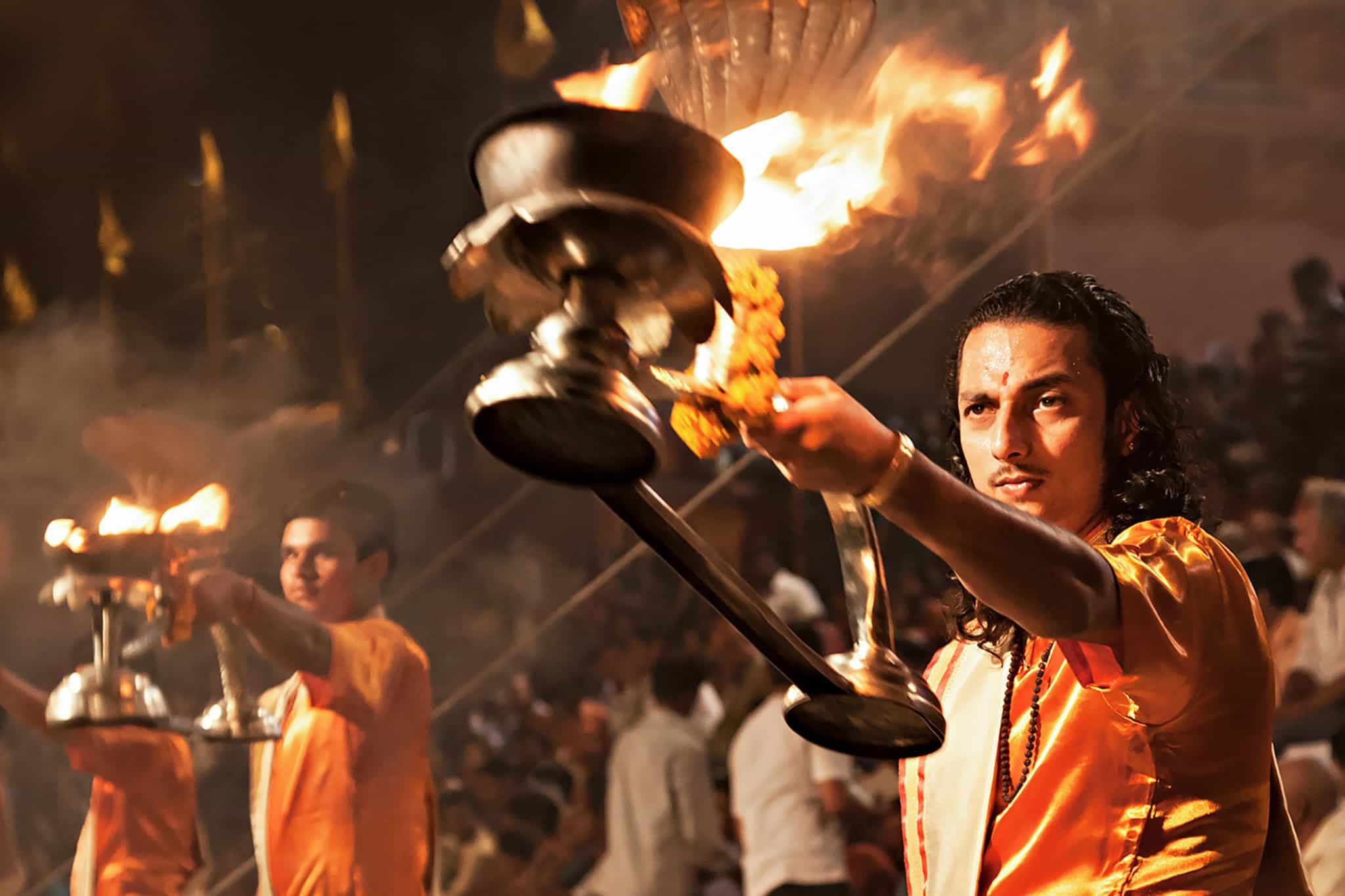
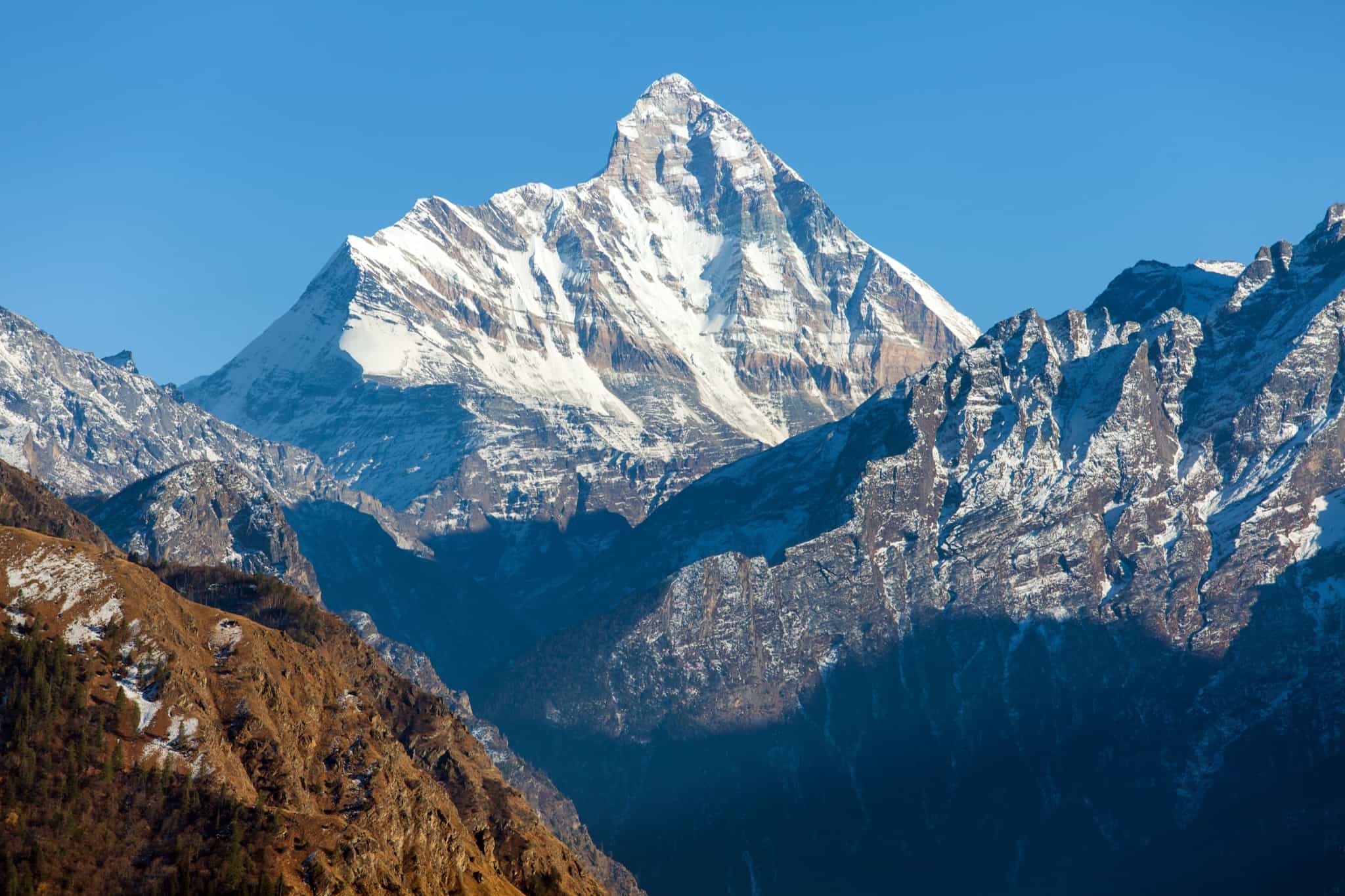
Hike an epic hidden gem of a trail through a truly peaceful and unspoilt region of the Himalaya in India
Camp in high mountain meadows and ridges in the shadow of snow-capped Himalayan giants, including Nanda Devi (7816m)
Experience sacred sites along the Ganges and the spiritual floating lamp ceremony of Ganga Aarti in Rishikesh
Key Information
Day 1
Welcome to Delhi!
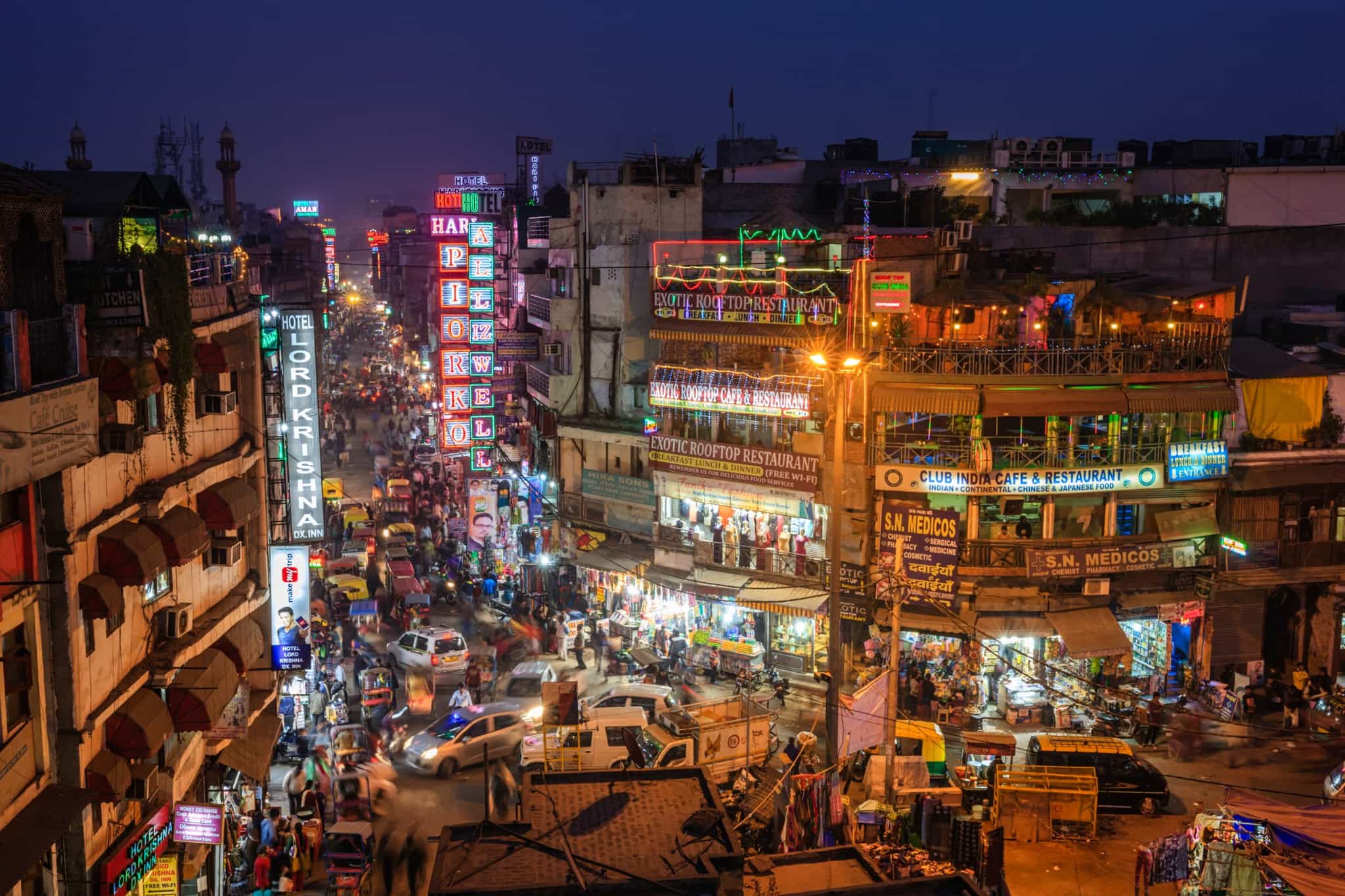
Join the group transfer from Delhi airport and settle in for the transfer across town, or make your own way to the hotel in the city centre (see 'Getting There' for details). Depending on your arrival time, you may have time to head out and explore some of Delhi's sights before meeting your group for dinner.
Day 2
Hop on a train towards the Himalayas
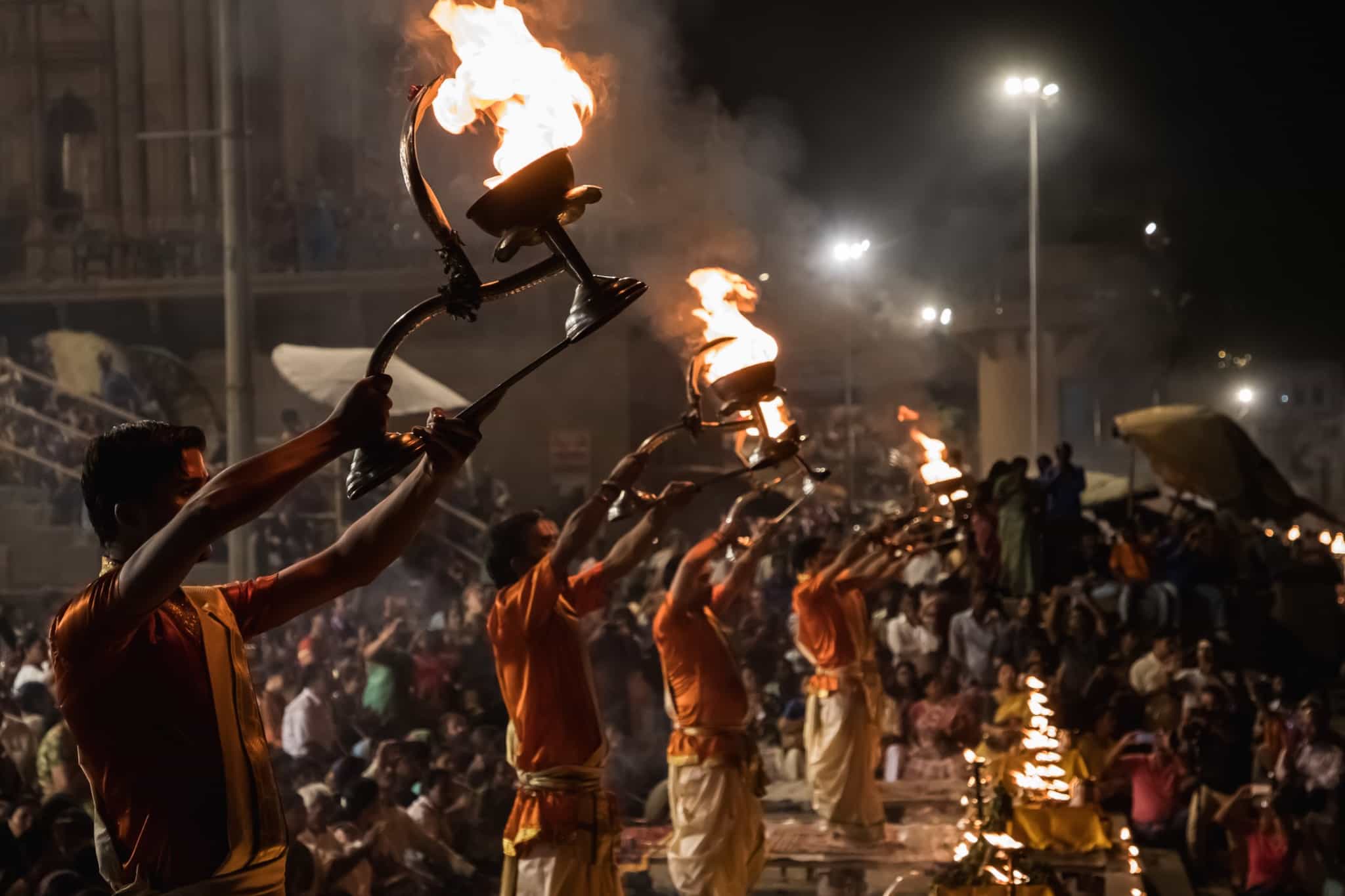
Driving
Train Ride
Depart Delhi Train Station on the early morning Shatabdi Express to Haridwar (a five-hour journey), settling into your comfortable 'Air-Conditioned Chair' carriage. From here, drive on to Rishikesh, the centre of Indian yoga and meditation, on the banks of the River Ganges. In the evening, walk the Ganga Trail from Laxman Jhula to Ram Jhula, passing the ashrams, old yoga centres, wandering cows and rustic cafes that line the river. Your guide will then take you to experience the spectacle of the Ganga Aarti, a holy ritual performed by Vedic Priests along the Ganges. The atmospheric ceremony sees priests holding flaming bowls that smoke across the river as flower-filled floating diya lamps are released. Chiming bells and mantra chanting add to the ambience to leave you with a memorable spiritual experience.
Day 3
Road trip to Salubagarh (1600m) via the sacred Prayags of the Garhwal Himalayas
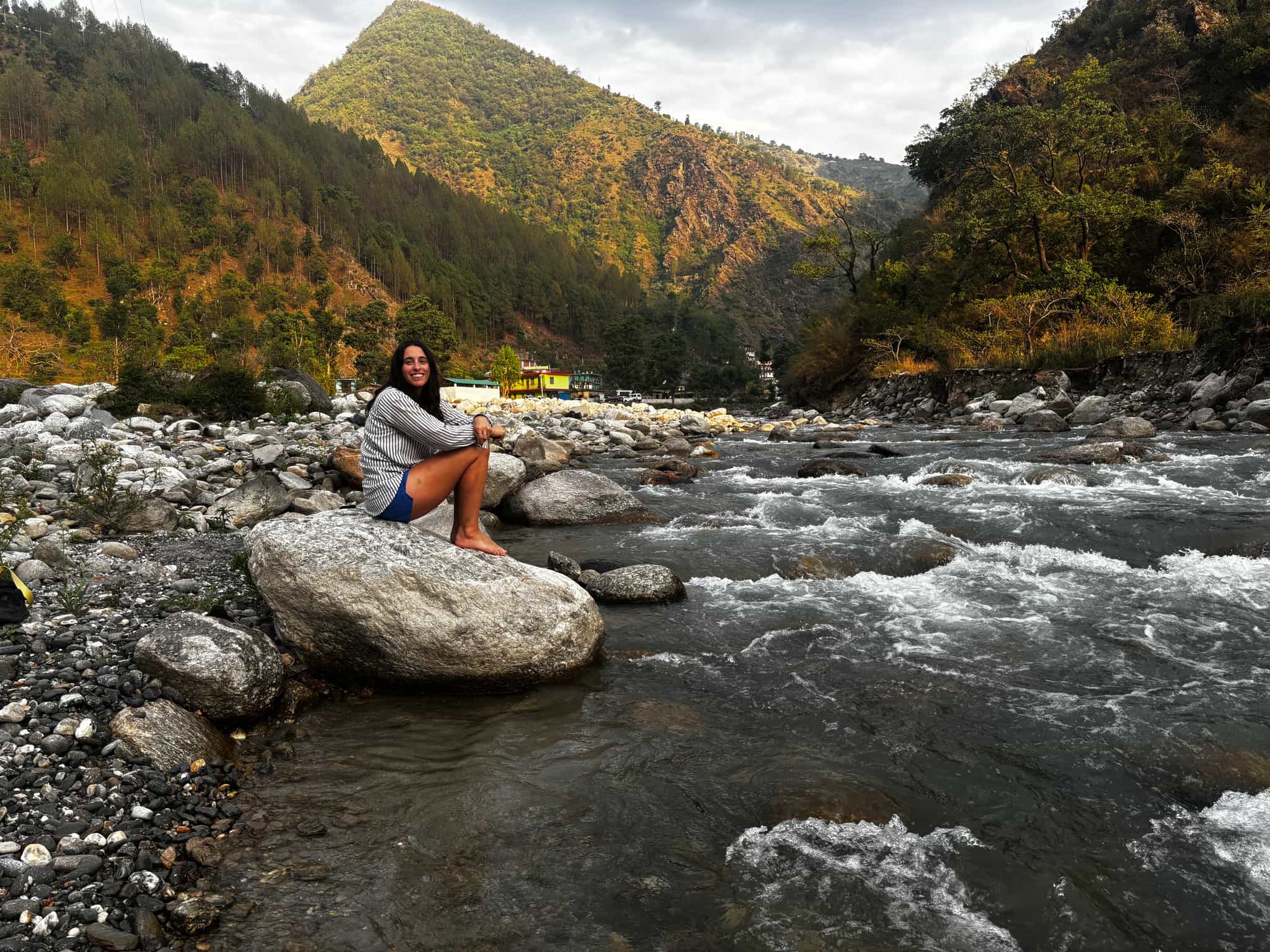
Driving
Reach the mountains proper as you embark on a road trip to the starting point of your trek at Salubagarh, on the outskirts of Joshimath. The scenic drive takes you high into the foothills of the Garwhal Himalayas. You'll pass four of the five sacred river confluences of the Garwhal, called 'prayags', which hold huge significance in Hindu belief and make for interesting stops along the way. After hitting a local restaurant for lunch and topping up the road snacks, carry on up to our camping spot at the riverside village of Salubagarh with a few more scenic photo stops along the way.
Day 4
Meet your crew and trek to Ghunni (2500m)
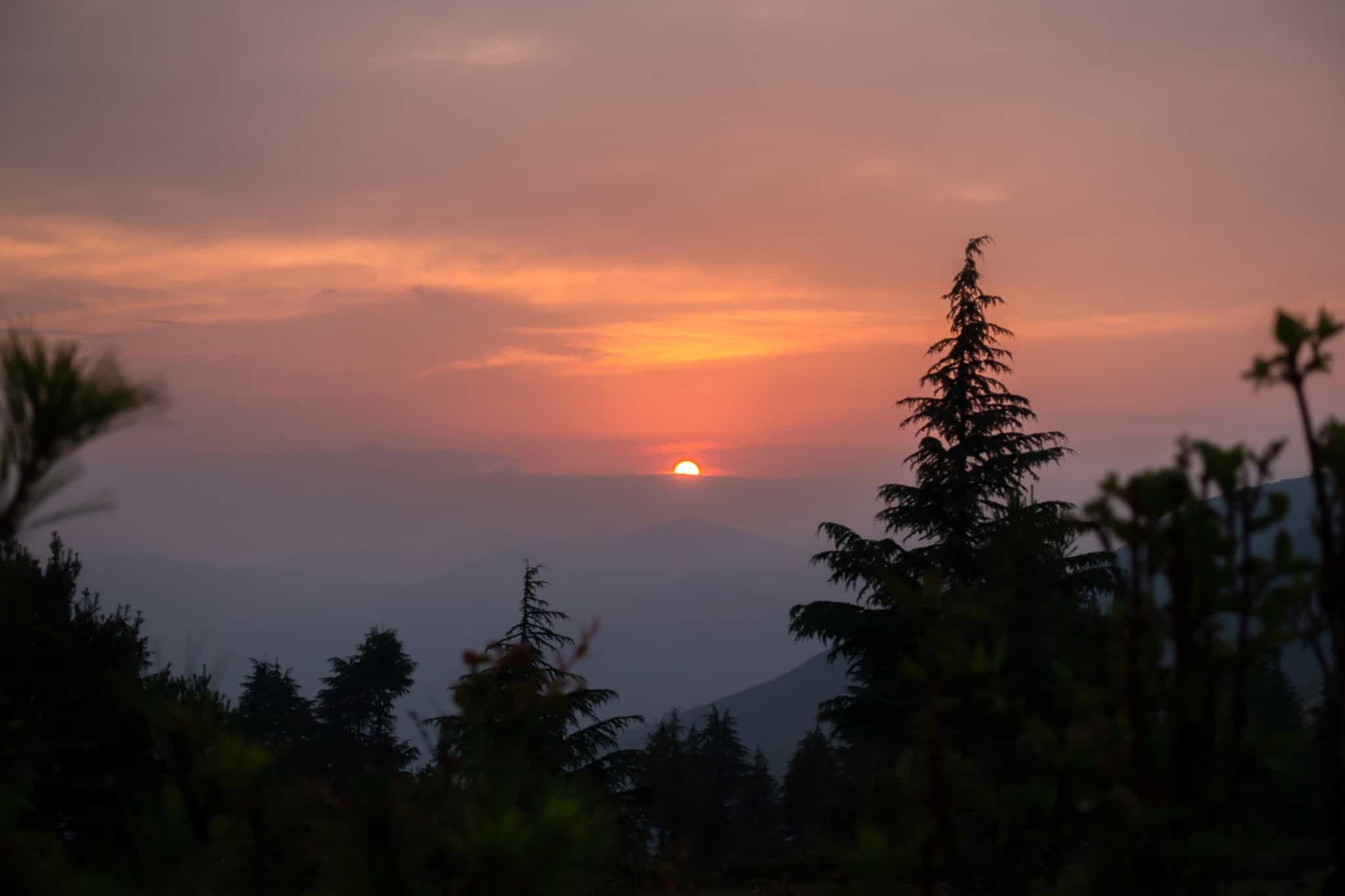
Hiking
Today you start your trek into the foothills of the Indian Himalayas. Begin with an easy walk along a glacial river before climbing up through a coniferous forest to the beautiful village of Rumni. The village is typical of the Garhwal region with heavy slate roofs, paved alleys and small farm plots – and the more recent addition of solar power in the local homes. Continue up to a high plateau, reaching camp for the night in the settlement of Ghunni. Enjoy your dinner with a stunning sunset over the verdant foothills below.
Day 5
Trek to Sem Kharak (2600m)
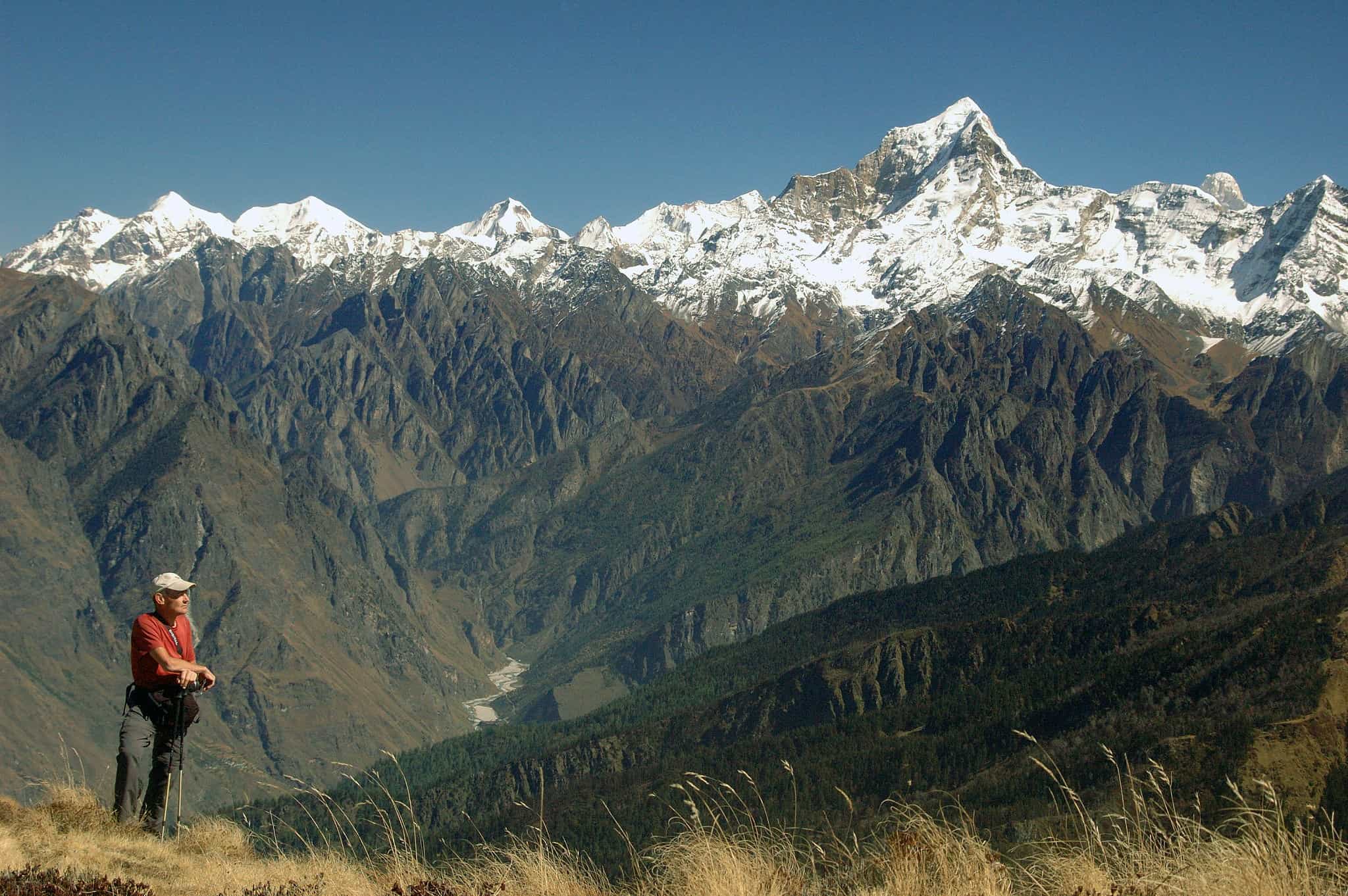
Hiking
Limber up the legs, as today's route starts with an uphill climb. Zigzag your way along the trail to a high-altitude meadow from where you will get your first glimpse of the mighty, snow-capped Himalayan peaks. The trail continues up through a leafy forest of rhododendron, pine and oak, until you reach the day’s highest point at Chechni Vinayak (3150m), catching a glimpse of Kuari Pass in the distance – your objective in a few days. Shepherds often use the pass, so you may be joined by flocks of sheep and goats making the climb. From here, follow a gradual downhill trail across verdant meadows and open glades, passing through forests of horse chestnut and walnut trees with the occasional waterfall on the way to tonight's camp at Sem Kharak.
Day 6
Make your way to Pana (2750m)
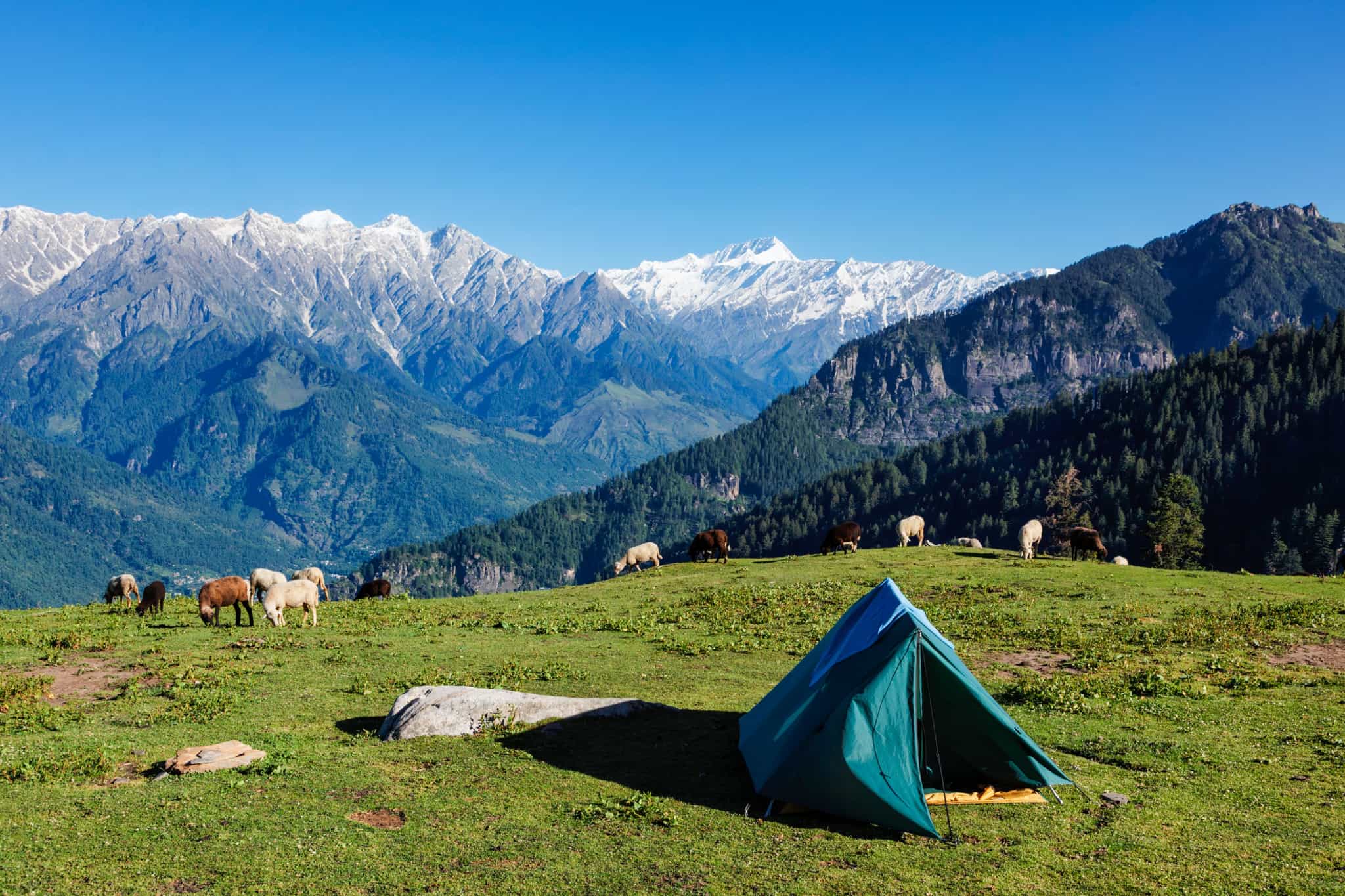
Hiking
After breakfast, start with a descent to the village of Jhinjhi, then continue down past small farms and woodland leading to the beautiful Birehi Gorge. Descend to a bridge at the road head, and follow a trail beside the river before tackling a strenuous climb for a few hours to Irani Village. An easier, flatter end to the day awaits though, as you hike to your campsite just above the village of Pana.
Day 7
Hike to Dhakwani (3325m)
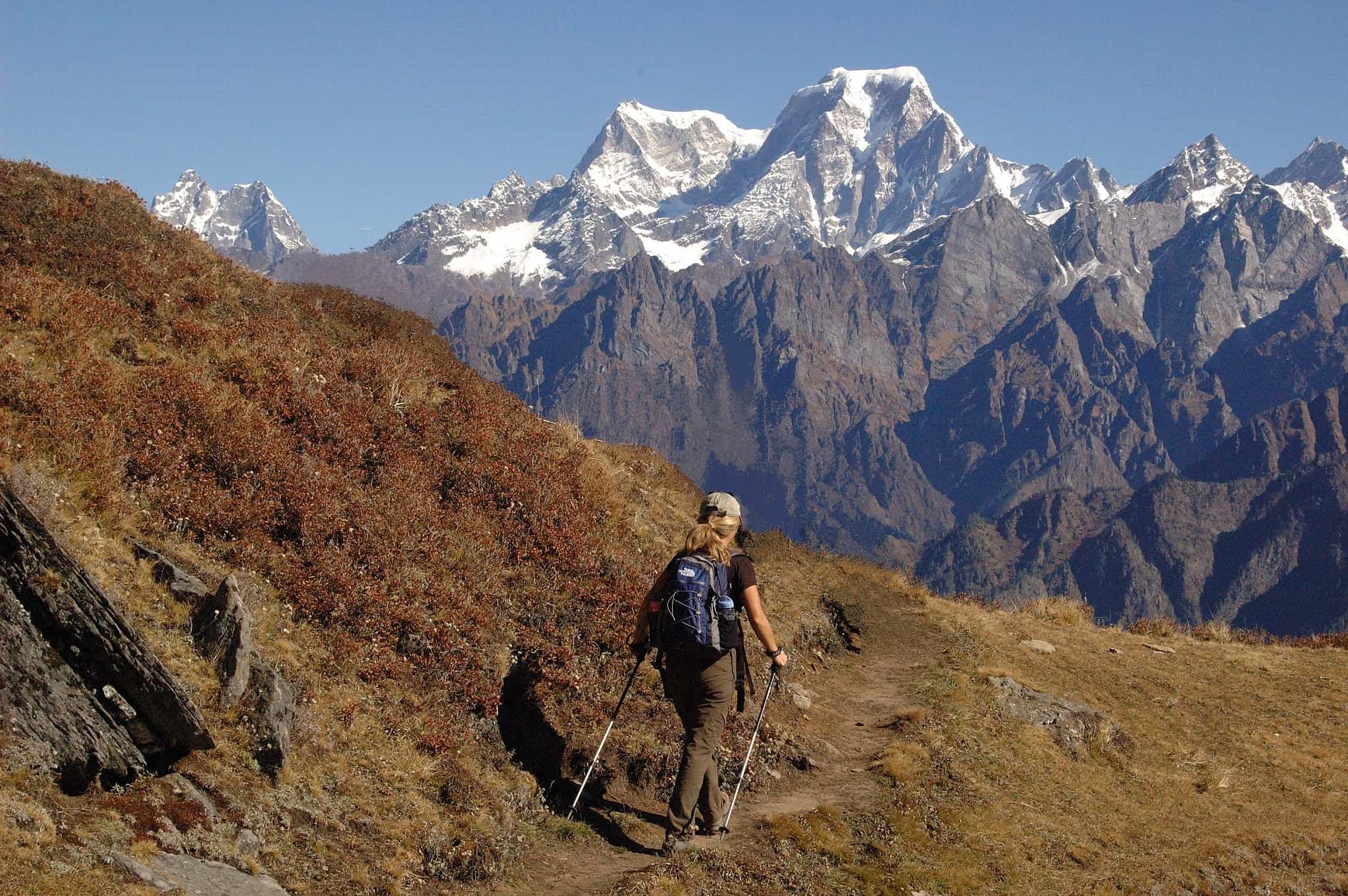
Hiking
Today's trek takes you to Dhakwani, a small hamlet at the base of the epic Kuari Pass. The trail starts with a steep climb through the forest up to Sartoli Meadow, which is adorned with wildflower and has excellent views over to Kuari Pass. After crossing the meadow, drop back down to a river and into a wild landscape that is home to Blue sheep and Himalayan black bears. Climbing higher, cross another stream before reaching large pasture land well above the tree line. Settle in for the night at the highest camp of the trek, and get a well-deserved night's sleep.
Day 8
Cross the Kuari Pass (3750m) and descend to Tali (3320m)
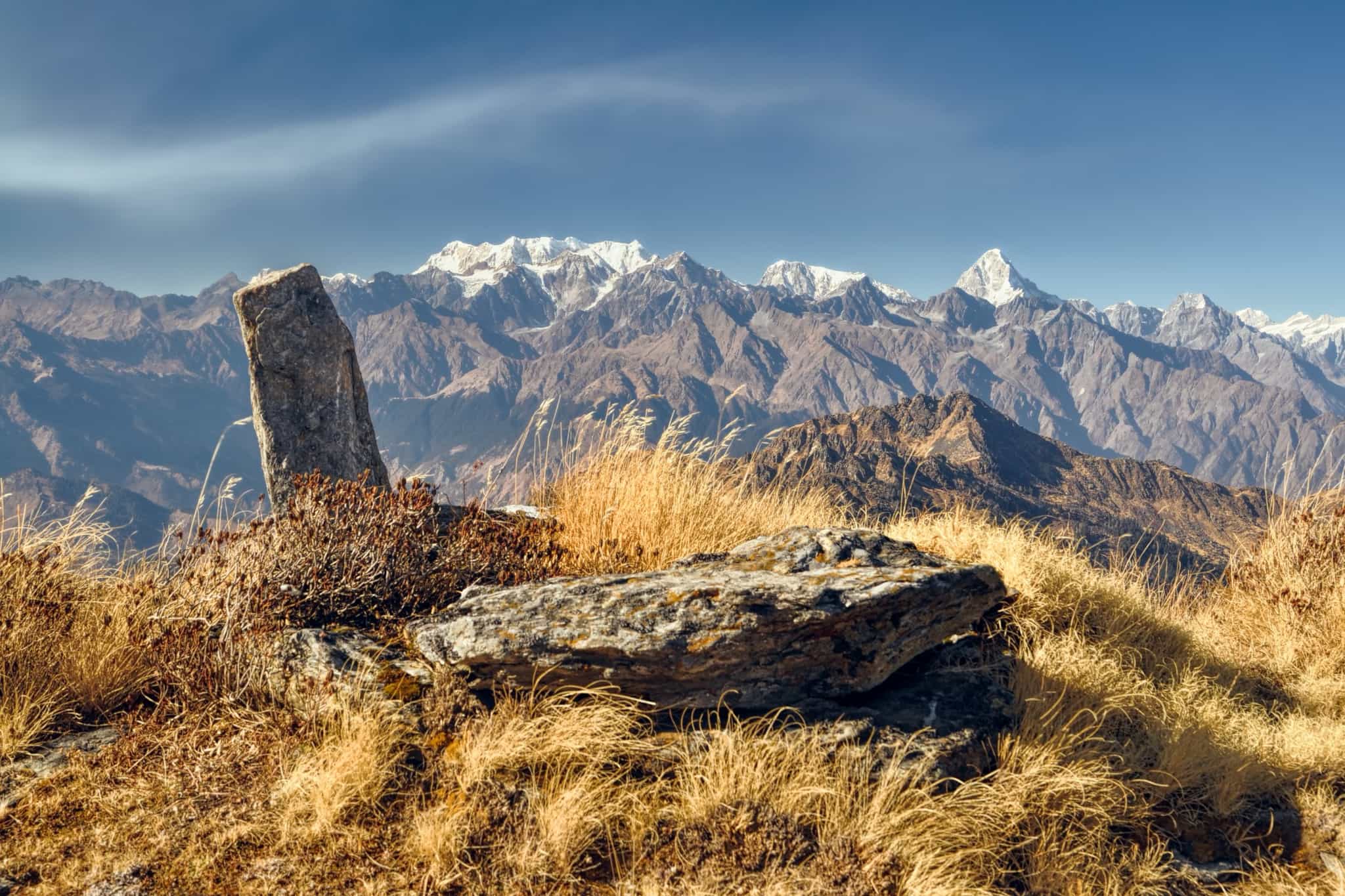
Hiking
Prepare yourself for the most spectacular day of the trek – ascending over the highest point, Kuari Pass (3750m). The rewards are epic: Kuari Pass offers one of the best views in the Himalayas, a wide panorama of the spectacular, snow-capped mountains. Be wowed by the multiple six- and seven-thousand-metre peaks in view, but it is not until you start the descent that Nanda Devi (7816m), the highest in this range, reveals itself. Continue downhill to the camp at Tali, on a ridge with another beautiful vista of these mighty, icy summits.
Day 9
Finish the trail at Auli (2650m)
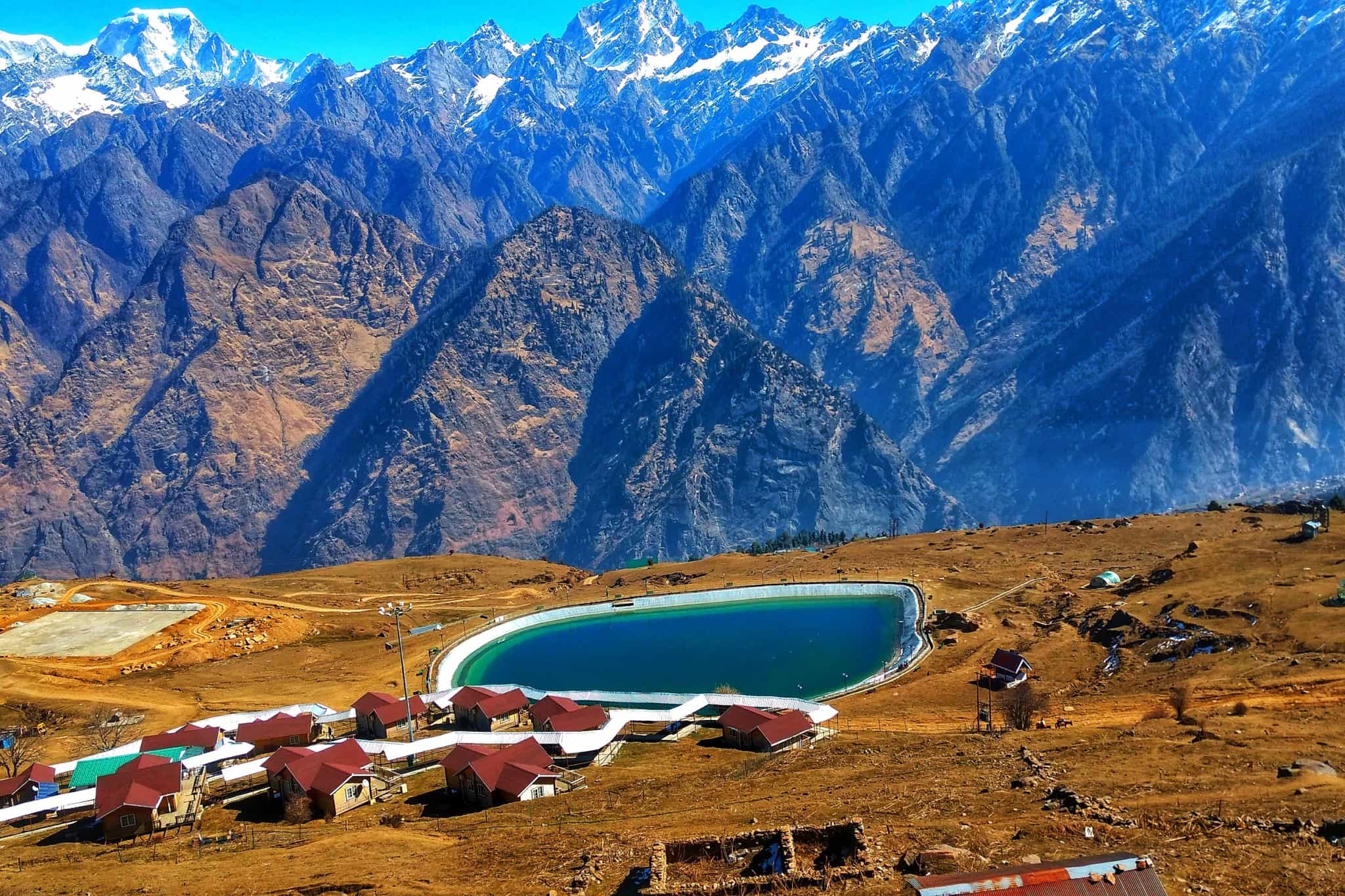
Hiking
Driving
The thrilling trail from Tali is narrow and requires cautious walking as you follow an undulating path down to Auli, with views of Nanda Devi accompanying you as you descend the ridge. Finally, you cross the valley of Gorson Bugyal, with its vast meadows speckled with wildflowers, before reaching the ski resort of Auli where the trek ends. From here, you'll be driven to the hotel in Rudraprayag – one of the five 'prayags' (holy river confluences), where the Alaknanda and Mandakini rivers meet – where you can freshen up. Tonight, join your group for a celebratory farewell meal to celebrate your successful trek together.
Day 10
Take the train back to Delhi
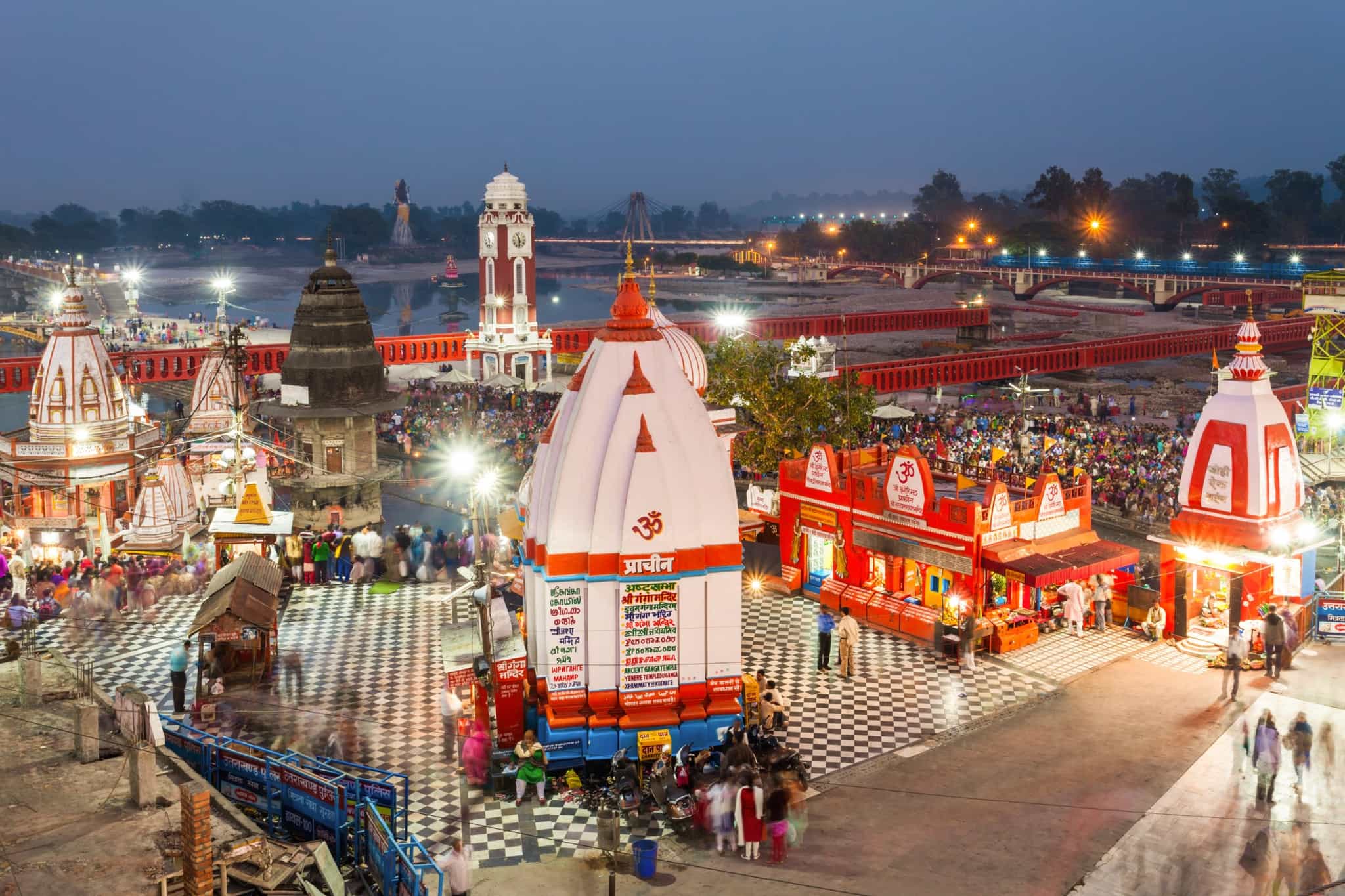
Driving
Train Ride
After breakfast, it's time to head down the from the mountains and back towards the hustle and bustle of Delhi. You'll first drive to Haridwar, a significant pilgrimage site for Hindus, revered as the place the Ganges emerges from the Himalayan foothills. Thousands of worshippers are drawn to its riverbank Ghats to perform ceremonies and attend festivals throughout the year. It serves as an ideal end-point to your Himalayan adventure, having explored spiritual sites and overcome physical challenges journeying through this compelling region. It's then time to head to Haridwar railway station for the Shatabdi Express train back to Delhi (a 4.5-hour journey in the Air Conditioned Chair carriage). Arrive late evening and check in to your hotel.
Day 11
Goodbye India!
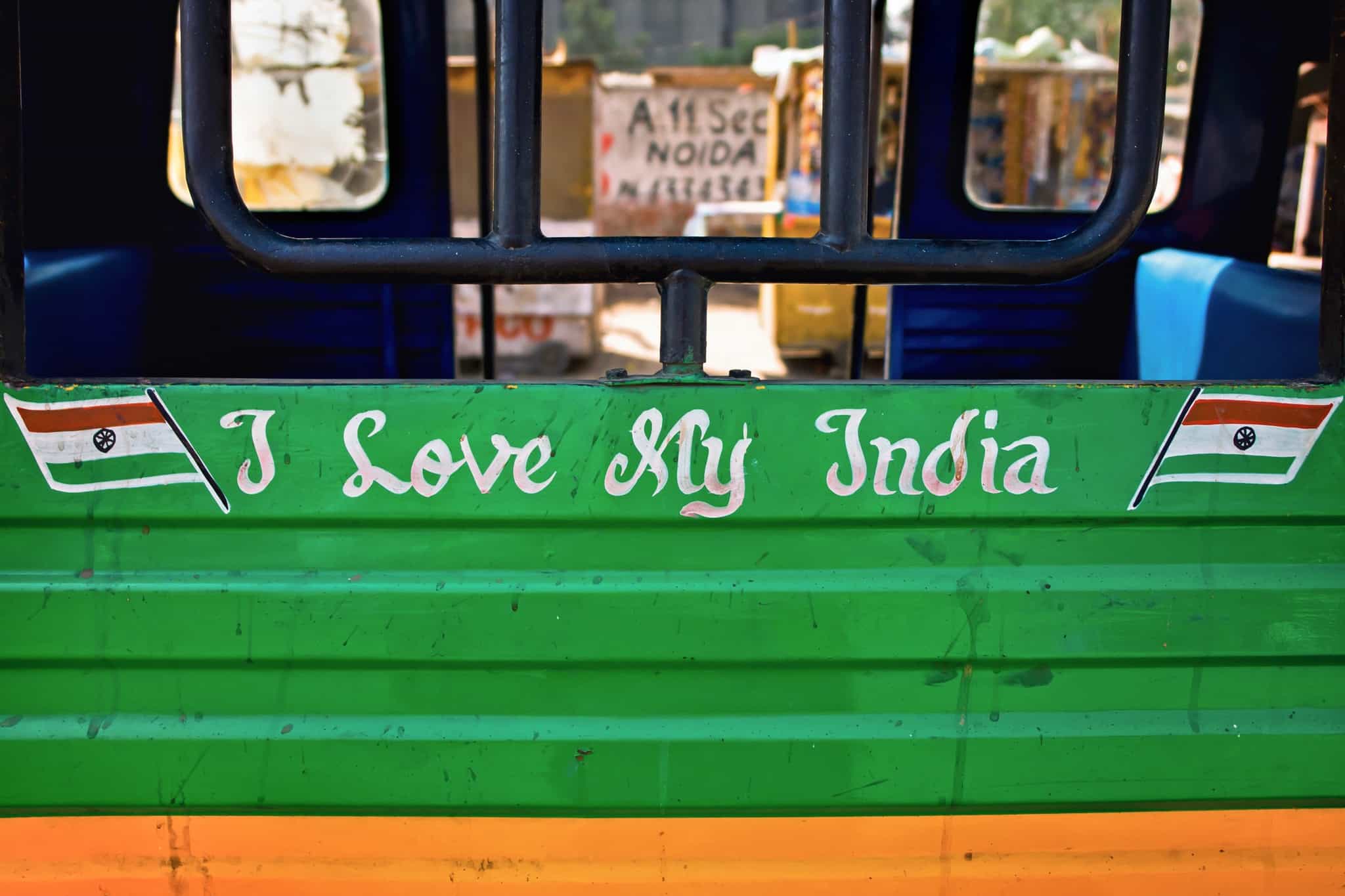
After one last breakfast, your host will provide a fixed-time group transfer back to Delhi airport - see 'Getting There' for details.
The Area
Logistics
Starts
Indira Gandhi International Airport, Delhi
11:00 on Day 1
Ends
Indira Gandhi International Airport, Delhi
09:00 on Day 11
Transfers
A fixed group arrival transfer is scheduled to meet flights arriving in Delhi by 11:00 on Day 1. Please do not book a flight that is scheduled to arrive after 11:00 if you want to join the group transfer.
On Day 11, a fixed group departure transfer will depart your accommodation at approximately 09:00 and drop you at Delhi International Airport in time to catch any flight departing after 13:00. Please do not book a flight departing before 13:00 if you want to join the group transfer.
If your flight times don't coincide with the group transfers or you wish to extend your stay, your host can arrange private airport transfers and pre- or post-trip accommodation. See Optional Extras for prices.
Travel options
There are numerous direct flight options to Delhi with various carriers from the UK, Europe and the east coast of North America. Travellers from the west coast of North America will generally transit through major hubs such as London, Paris and Dubai.
Private transfers booked via your host include a representative in addition to the driver.
Day 1
Breakfast
Lunch
Dinner
Day 2
Breakfast
Lunch
Dinner
Day 3
Breakfast
Lunch
Dinner
Day 4 – Day 8
Breakfast
Lunch
Dinner
Day 9
Breakfast
Lunch
Dinner
Day 10
Breakfast
Lunch
Dinner
Day 11
Breakfast
Lunch
Dinner
What is the food like?
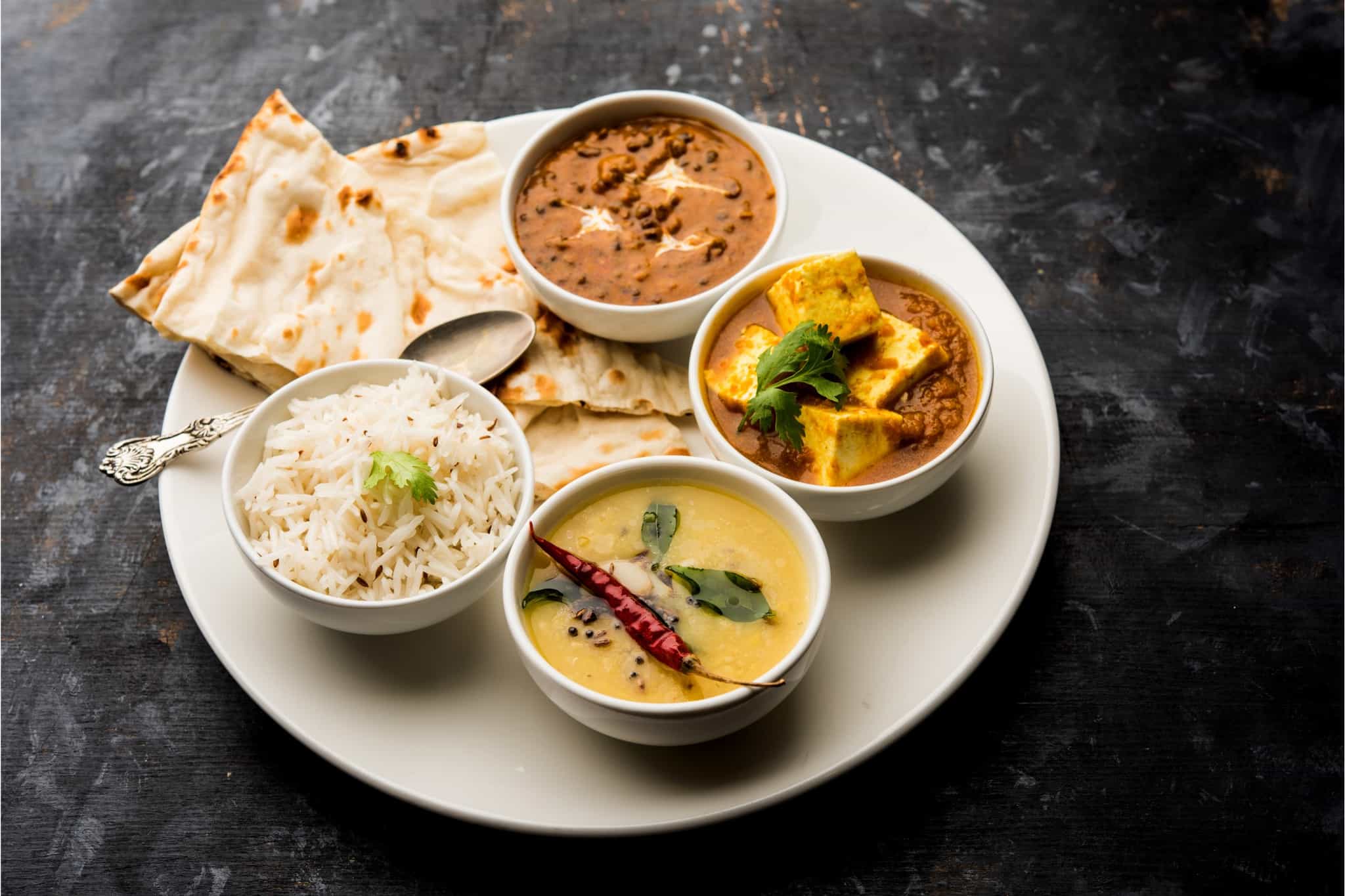
Any trip to India is a sensory delight, and the flavours of the food are a big part of that. North Indian cuisine is often mirrored in the curries found outside of India in Western restaurants, so curry lovers will be in their element on this trip. Curry dishes in the north tend to be rich and creamy, with common ingredients being cashew, chicken, lamb, potato, cauliflower, alongside breads such as naan, paratha and roti. Delhi is fantastic for street food such as chaat – a whole family of different types of savoury snacks, and chole bhature – a famous Delhi street dish of curried chickpeas and fried bread served with chillies, onions and coriander. There are Western food options available if you fancy a break from Indian food at any point.
When on the trek, food is prepared by the dedicated cooking staff who whip up an impressive variety of quality food (both Indian and international) from the camp kitchen each morning and night, served in a buffet style. Hearty breakfasts can compromise of cereal, porridge, toast, cheese, jam, omelette, pancakes, tea and coffee. A warm lunch, cooked in the morning and transported in insulated flasks, is served at scenic spots along the trail which might include pasta, vegetables, eggs, chicken, potato or noodles. A warm buffet meal is again served in the evening in the camp dining tent, served with dessert options such as apple pie, custard, gulab jamuns (an Indian sweet dish), fruit, banana fritters, rice puddings and more.
Vegetarians and vegans are extremely well catered for in nearly all parts of India. Other dietary requirements and allergies can also be catered for – please just request these on your passenger info form.
What is the accommodation like?
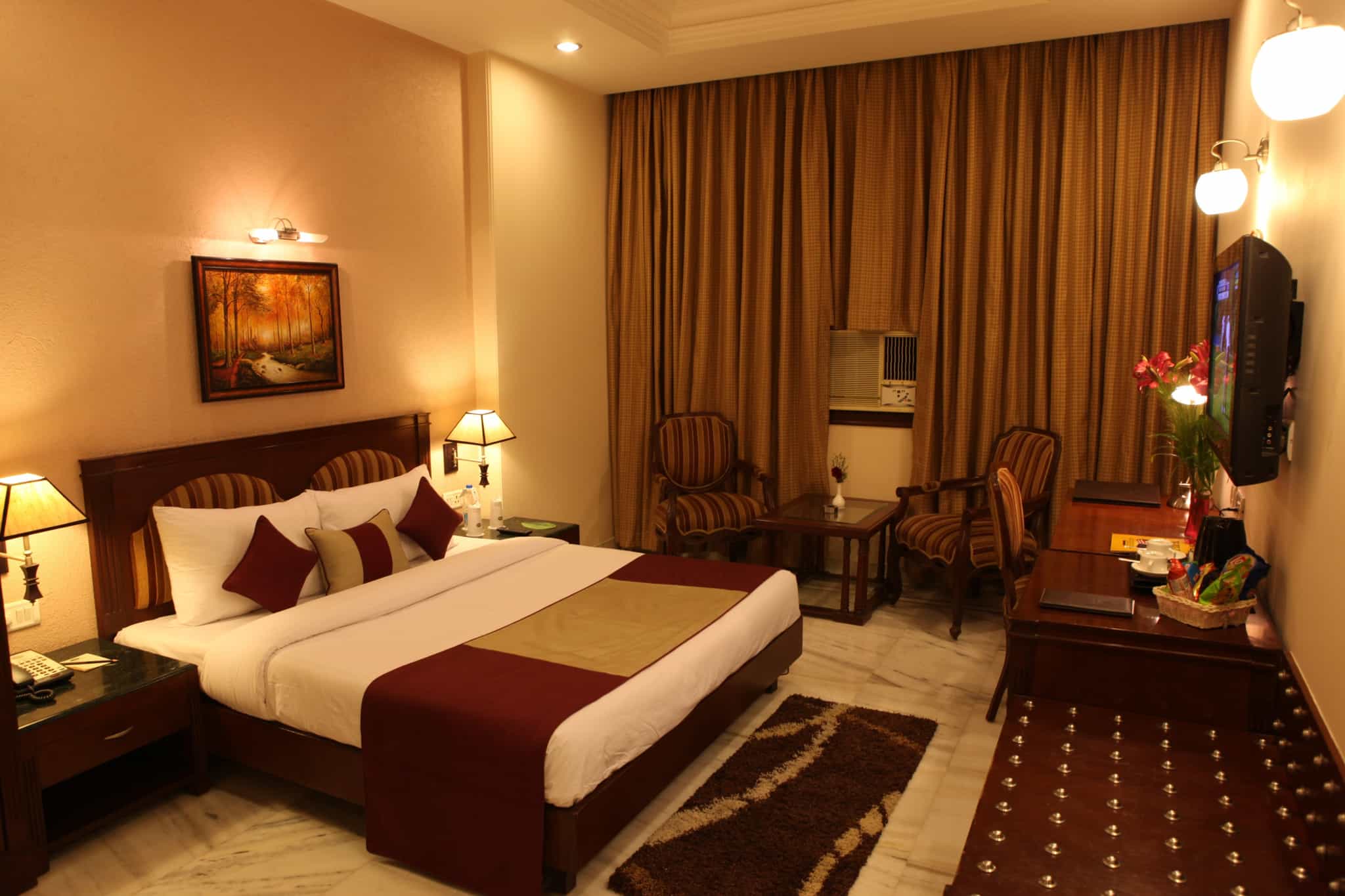
Delhi
On the first and last nights of the trip in Delhi, you’ll stay in the centrally located Florence Inn Hotel or similar, on a twin-share basis with en-suite bathrooms, air-con and WiFi.
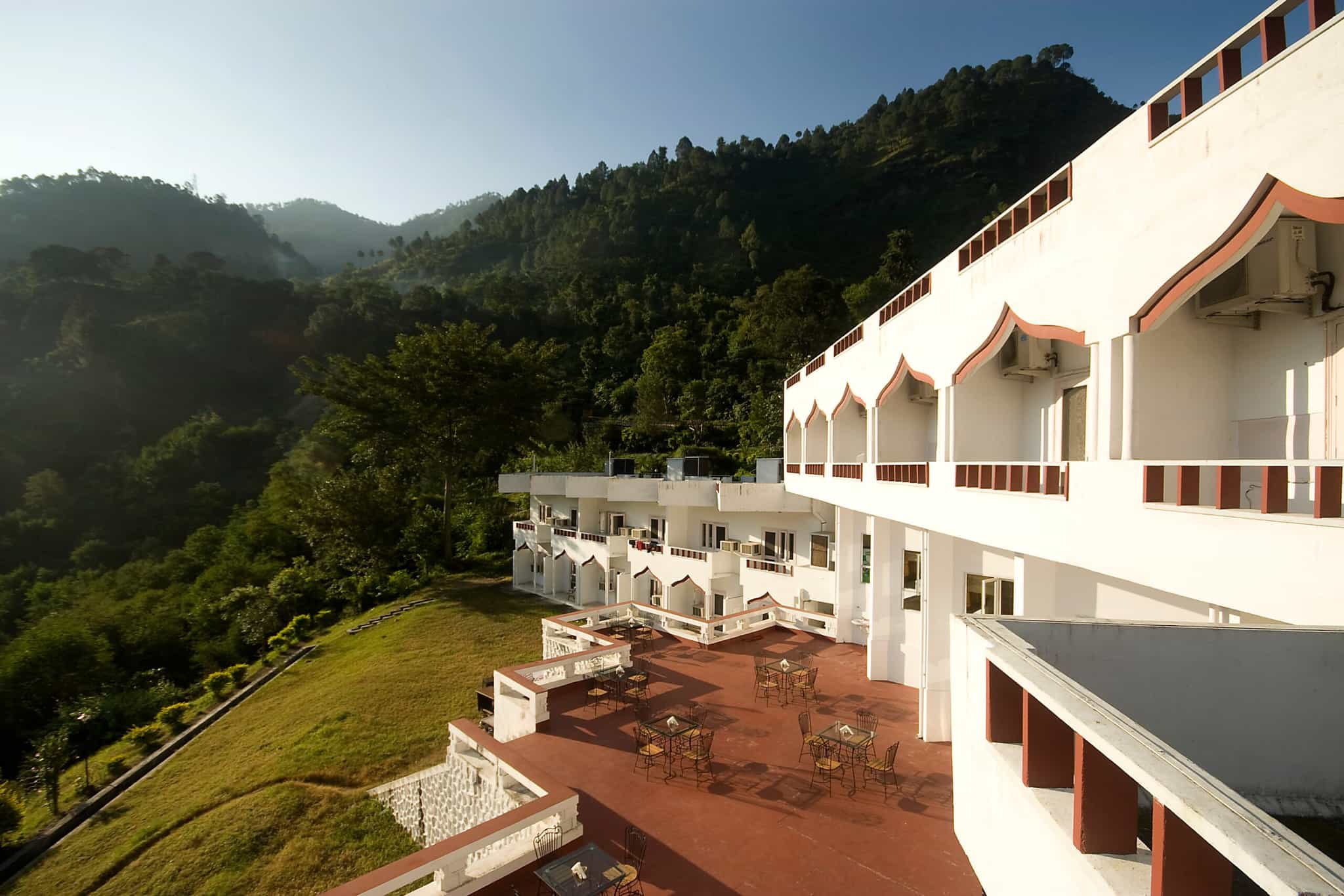
Rishikesh and Rudraprayag
In Rishikesh before the trek, you will stay in the Neeraj Bhawan Hotel (or similar), on a twin-share basis. The hotel has its own pool. After the trek, in Rudraprayag, you'll stay in the Monal Resort Hotel – also on a twin-share basis.
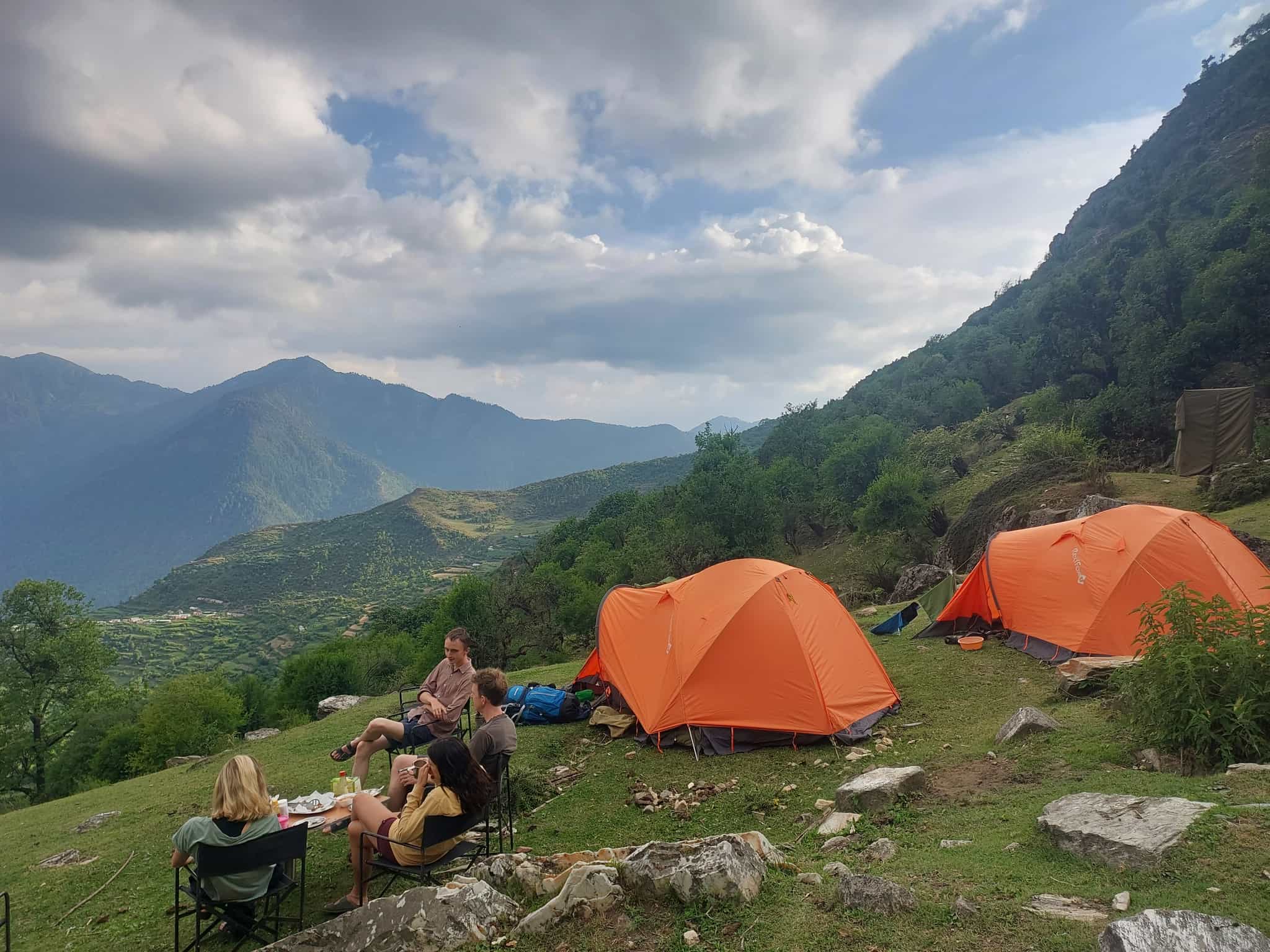
On the trek
Whilst you're trekking, you’ll camp in high meadows or on the edge of small mountain communities in twin-share tents. Your tent will be put up for you, and a comfortable camping mat is provided – just bring your sleeping bag! There will also be a tent provided for group meals.
Upgrades
For solo travellers looking for their own space, an optional private room can be booked – see Optional Extras. Please note, this only applies to the nights spent in hotels, and is subject to availability. Please request this at the time of booking.
This trip has been rated as Challenging
A spectacular route through a little-visited corner of the Himalayas, this trip is also an ideal introduction to Himalayan trekking. Most days' walking will be around 5-6 hours, with a couple of longer days, on paths and trails that are relatively comfortable underfoot. There are a few challenging climbs over passes to scale but the views are worth it and all should be attainable for a regular hill walker or those with a reasonable level of fitness.
Still, it is important to note that trekking at altitudes above 3000m/10,000ft is more demanding on the body than walking at low elevations, although this trek does not reach the extreme elevations of some of its Himalayan counterparts, never going above 4,000m. A good level of fitness, stamina, and experience walking in the hills will make the going more enjoyable, so consider factoring in some training beforehand – we advise doing at least a couple of weekends of back-to-back days hillwalking.
What will I need to carry?
While hiking you'll only need to carry a small daypack containing personal items, snacks and water. You'll also need to have a larger bag suitable for all your belongings which will be transported for you.
The best time to visit this part of the Himalayas is before or after the monsoon season, which runs through July and August. The months of May and June, as well as September and October, tend to be dry and pleasant for trekking. In the cities and valleys, you can expect daytime temperatures of around 25-30°C. As you climb into the mountains, this will drop the higher you go. The higher camps on the trek may reach temperatures below freezing overnight. Of course, mountain weather is notoriously hard to predict and snow can be expected on any trip, so do come prepared.
Magical end to an epic adventure
Another great trip from MBA - Ketan and the crew made sure we had an awesome holiday from the morning wake up Chai to picnic lunches on the hike and dinner with dessert at the end (how Miles made pizza I do not know!)
Amazing secluded trail full of amazing scenery
An amazing trek through some of the most awe inspiring scenery you will ever see. The guides were all excellent, being good fun, knowledgeable and good levels of English. The food was unbelievable for camp grub. I had braced myself for a week of Dahl for breakfast, lunch and dinner, however we were treated to pizzas, pasta, noodles and a whole host of other gorgeous dishes prepared by our brilliant camp cook team. The trek also brought us past some isolated villages where we got the chance to chat with local people and interact to get to understand the culture. An added bonus was that the group got on exceptionally well. All of us were on the same page and I will never forget the evenings sitting in the mess tent and the whole place was roaring with laughter. As mentioned in other reviews, the toilet facilities are basically a hole dug in the ground with a tent over it, but you soon get used to this. I will definitely be looking at another trip like this in the near future



Incredible trip, I just want to go back!
This trip was absolutely fabulous - from the fun and like minded group, to the insane scenery to our wonderful guides Manoj, Jaisingh and the amazing, amazing support team. The route was incredibly well planned so that the views just kept getting better and better, we were fed the most incredible food in the most stunning environments and our camps were set up for us and packed down for us each day - I felt like a queen. The most surprising part for me was getting the opportunity to get immersed in the culture as well as experience the spiritual power of the mountains. Between our travel days either end of the trek as well as visiting several of the villages in the Himalayas we had an opportunity to mix and interact with locals which I was not at all expecting and valued greatly.





Epic scenery and an amazing support team 🤯
I smile every time I think about this trip. It was wonderful and inspiring in so many ways. I'd read lots of references to the Indian Himalayas in travel guides, blogs etc and I was always drawn to it. Now I get why people find it so enchanting.
The scenery is mind- blowing good from day 2 onwards. Rugged with this kind of hazy serenity. Better than NZ and anything I've seen in Europe. Right up with Patagonia and the Canadian Rockies in my view. What's more we had it to ourselves - we only saw 1 other group in the first 5 days (although we were in the shoulder season). Either way I feel very fortunate.
Jai Singh our trekking guide was an absolute legend. Humble, kind and with lots of interesting nuggets of insight and stories if you took the time to get to know him.
The support crew were amazing. Rustling up really good food and plenty of it - porridge, eggs and fresh bread for breakfast, hot soup and curry for lunch, delicious snacks at 4pm and all manner of things for our 3 course dinners including fresh pizza! I even got a birthday cake :)
Our group of 10 were an absolute blast. I haven't laughed that much in a long time - the craic and the chat was next level. I hope to see a lot more of them in the future.
A few things to be aware of: 1) it's 2.5 days at either end to get to/from the trekking. Well worth it but not for everyone, 2) the toilet is a hole in the ground with a tent around it. Entirely normal for wild camping but takes some adjustment!
A few random tips: 1) Merino wools thermals are essential as are lots of layers - I wore 6 on top and that just about kept me warm, 2) a sleeping bag that's comfortable at -5 is a must, 3) it's hot during the day so shorts and t-shirts are a must too, 4) lip sun cream was a massive help, 5) your stomach will suffer at some point so Immodium is essential - as an option if you need it... 6) go easy on the snacks you bring - you'll be well fed, 7)the sleeping Matt was pretty good so I didn't use my thermals rest, 8) card games are well worth bringing - there's free time in the evenings
The trip was well planned
The trip was well planned and superbly executed by a dedicated team who were assiduous in attending to the needs of the guests on the trip. The route chosen was challenging but enjoyable to walk and spectacular to behold. This inevitably posed difficulties to the team in ensuring that good food was prepared for guests on the trip and yet the food that was produced in seemingly impossible circumstances was excellent. The guides and team leader worked hard to ensure that the needs of the group were catered for. It is hard to overstate the pedantic and often insensitive demands that certain guests imposed on the staff and yet these were catered to with an almost inhuman level of tolerance and polite patience. I would recommend the trip wholeheartedly. The travel to and from the mountains was tiresome and could perhaps have been broken down more effectively. However that is only a small criticism of what was otherwise a very good trip.
Fantastic trip! The mountain scenery
Fantastic trip! The mountain scenery was incredible. The hiking each day was very manageable and enjoyable. We were totally off the beaten track and didn't see any other hikers until the last day. The whole team was amazing (especially our guide Ketan) the food absolutely fantastic and huge portions. The weather was lovely for hiking during the day but be aware it is cold and windy at night! I brought the wildcraft sleeping bag in Delhi on advice of the team, although it said it was -5 it really wasn't. So I'd recommend bringing a good sleeping bag with you or getting a decathlon one delivered. Definitely worth doing!
Amazing trip!
Incredible scenery, great trip and sad it is over! Our guide Ketan was amazing, couldn’t have been more helpful, we also did some extras like yoga and learning how to make roti which was great. The food was so good, I can’t believe what they managed to make out of a tent on the mountain, the whole team couldn’t have been any better. 5* all round :)
Great trip. The guide and
Great trip. The guide and the pony men were lovely. Knowledgeable, warm, and open about Indian culture and history as well as our itinerary. The route allowed us to see lives in rural Uttarakhand as well as the wilderness. Lovely villages, and some amazing wildlife like Monals and Himalayan Griffins. Really enjoyed the company and the yoga. Lots of laughs in our group, who got on well.
Fantastic trip. The camping is
Fantastic trip. The camping is incredible with a team who are so good at looking after you - amazing food! You feel the altitude but hiking is very manageable on reasonable fitness. So lovely cultural extra's added in to the trip.
Itinerary Activities
- Guided walk along the Ganga Trail and experience the Ganga Aarti, a holy ritual performed by Vedic Priests
- Roadtrip to Salubagarh via the sacred Prayags of the Garhwal Himalayas
- Guided hike to Ghunni
- Guided hike to Sem Kharak
- Guided hike to Pana
- Guided hike to Dhakwani
- Guided hike over the Kuari Pass (3750m) to Tali
- Guided hike to Auli
Guides
- Expert, local, English-speaking tour leader and trekking guides
Accommodation
- 4 nights in hotels
- 6 nights camping
Meals
- All (10) hearty breakfasts
- 6 warm lunches
- 8 buffet-style dinners
Transfers
- Group arrival transfer from Delhi Airport on Day 1
- Group departure transfer to Delhi Airport on Day 11
- All transfers during the trip, including train journeys in air-conditioned cabins
Porterage
- Pack horses will carry your overnight luggage on the trek
Permits
- All entrance fees and permits are taken care of
Our trips are hassle-free by design. We include all the activities and equipment, as well as many of the meals, so you can simply rock up with your rucksack and share the adventure with your new pals.
Travel to and from the trip
Our trips do not include flights, trains or other travel to the start point and back from the end point.
Tips
Tips are not included in the trip cost. These are entirely at your discretion but there is an expectation to tip for good service. Your guide will help with advice, however we suggest the below as a guideline, shared between the group:
- 2500-3000 Indian Rupees per day to the tour leader
- 1000-1200 Indian Rupees per day to the trekking guide
- 1200-1400 Indian Rupees per day to the cook
- 500-800 Indian Rupees per day per helper
- 300-500 Indian Rupees per day per muleteer
- In total, this would equate to approximately £100-£125 per person for the trip, depending on the size of your group.
Of course, you are free to tip more or less, and the amount should be reflective of your perception of service and quality – a tip is not compulsory and should only be given when you receive excellent service.
Travel insurance
Travel insurance is compulsory for all of our adventures and you are required to provide your policy information before departing. Your insurance should include adequate protection for overseas medical treatment, evacuation/repatriation, your baggage and equipment and the specific activities involved on your adventure. We also strongly recommend it includes cancellation and curtailment insurance, should you be unable to join your trip for specific reasons such as illness. Our recommended travel insurance provider is Campbell Irvine, as their insurance offers all of the above.
Visas
Visa requirements often change, and you are responsible for obtaining any required visas for this trip. The following advice may be subject to change. Please check with your nearest embassy or consulate for up-to-date advice.
All foreign nationalities entering India require a valid visa, which in most cases must be obtained in advance of travel (please check the regulations for your nationality). You must have a machine-readable passport, valid for at least 180 days from your arrival date in India. Persons of Indian origin must have an OCI card. Clients with a Pakistani passport or of Pakistani descent will need extra time and additional documents for visa processing.
Applicants of eligible countries can either apply online for an Indian e-Visa or apply for a Standard Visa, which involves an in-person visit to a branch of the Indian High Commission's Visa Facilitation Service (VFS). There have been delays to Standard Visa processing times so please book your appointment ASAP if using this service.
Personal Expenses
You know your own spending habits best, so please budget an appropriate amount for things like optional meals and drinks, shopping, optional activities, and laundry.
What do I need to bring?
BAGS
- Soft overnight duffel bag or rucksack
- Daypack (20-30 litres)
- Waterproof liner or drybags for kitbag/rucksack
CLOTHES
- Insulated jacket
- Waterproof jacket
- Waterproof trousers
- Breathable wicking layers
- Fleece jacket or similar
- Thermals (merino best)
- Warm hat
- Gloves
- Buff or neckscarf
- Lightweight trousers/shorts/skirts
- T-shirts
- Underwear and socks
- Swimwear
- Sunglasses
- Sunhat
- Sleepwear
- Hiking boots (worn-in)
- Sandals
- Leech socks (optional, leech's may be encountered in wet conditions)
SLEEPING
- Cotton or silk sleeping bag liner
- Sleeping bag (3-season / -5°C comfort rating, September & October departures in particular can be chilly at night)
- Travel pillow or pillowcase
OTHER
- Hard copy of your travel insurance certificate: this will be collected by your guide on arrival as it is needed for your trekking permit
- Universal travel plug adapter
- Power bank or solar charger
- Passports (and visas)
- Ear plugs
- Insect repellent
- Suncream
- Personal first-aid kit (inc. blister treatment)
- Personal items (biodegradable toiletries, sanitary wear etc)
- Toilet kit (toilet paper, biodegradable bags to carry paper out to dispose of)
- Quick-dry towel
- Alcohol hand-gel
- Headtorch or torch
- Reusable water bottle x1 litre (or x2)
- Biodegradable wet-wipes
- Energy bars and snacks - read our article on Best Hiking Snacks
- Water purification tablets/treatment system
2025: Pre/post trip accommodation in Delhi (single / twin)
Payable Before Departure
2025: Pre/post trip accommodation in Delhi (single / twin)
… Per night
2026: Pre/post trip accommodation in Delhi (single / twin)
Payable Before Departure
2026: Pre/post trip accommodation in Delhi (single / twin)
… Per night
Optional Private Room & Tent Upgrade
Payable Before Departure
Optional Private Room & Tent Upgrade
… Per person
Private airport transfer - each way (1-2 people)
Payable Before Departure
Private airport transfer - each way (1-2 people)
…
Private airport transfer - each way (3-4 people)
Payable Before Departure
Private airport transfer - each way (3-4 people)
…
We partner with the World Land Trust to ensure this trip achieves Net-Zero emissions. We also support their Buy an Acre programme, helping local communities to buy and protect natural habitats in perpetuity.
What's the number?
It works out on average at 234kg of CO2 emissions per person, including all local transport, accommodation, food, activities, guides, staff and office operations.
The only thing it doesn’t include right now is flights and travel to the destination. We do make an overall estimate across all our customers separately, but as we don’t book flights, have customers from all corners of the world, and no way of reliably knowing their travel plans, we simply can’t include an individual number in the figure on display here. We’ve got a goal to fix that, so that when you book, there is a way to measure and mitigate the carbon emitted by your flight too.
But what does the number mean?
Yep, hard to picture eh? To give you an idea:
- Driving 1000 miles/1609km would be approximately 281kg of CO2 in an average car (or 140.5kg per person, if there were two of you in it).
- A return economy class flight between London and New York would be approximately 1619kg (1.66 tonnes) per person.
- 10 trees in a temperate forest are estimated to remove approximately 250kg of CO2 from the air in a period of 5-10 years.
What are we doing about it?
Our trips are relatively low-carbon by design, and we're working with all our hosts to develop long term carbon reduction plans. We partner with the World Land Trust to ensure this trip achieves Net-Zero emissions. We also support their Buy an Acre programme, helping local communities to buy and protect natural habitats in perpetuity, ensuring the protection of the reserve and its wildlife.
Want to know more?
Amazingly, no international travel company has ever publicly published their carbon measurements before, as far as we know. We believe that must change, quickly. So we’re openly sharing the method we used in the hope that other companies will be able to more easily follow suit and build on what we've done so far. You'll find it all here.
Visa requirements often change, and you are responsible for obtaining any required visas for this trip. The following advice may be subject to change. Please check with your nearest embassy or consulate for up-to-date advice.
All foreign nationalities entering India require a valid visa, which in most cases must be obtained in advance of travel (please check the regulations for your nationality). You must have a machine-readable passport, valid for at least 180 days from your arrival date in India. Persons of Indian origin must have an OCI card. Clients with a Pakistani passport or of Pakistani descent will need extra time and additional documents for visa processing.
Applicants of eligible countries can either apply online for an Indian e-Visa or apply for a Standard Visa, which involves an in-person visit to a branch of the Indian High Commission's Visa Facilitation Service (VFS). There have been delays to Standard Visa processing times so please book your appointment ASAP if using this service.
Travellers eligible for an e-visa, which includes those from the UK, US, CA and EU, can apply online via https://indianvisaonline.gov.in/evisa/tvoa.html. Applications for 30-day e-Tourist visas can be made from 30 days before the proposed date of travel and not less than 4 days before your arrival date in India (applications for multiple entry 1-year e-Tourist visas can be made from 120 days in advance).
Applications for a Standard Visa (requiring both an online application and an in-person appointment) can be made via the VFS Global website.
Tensions between India and Pakistan escalated in early May 2025, with some military action taking place close to the border. As things currently stand, all MBA trips to India are scheduled to proceed as planned. We understand you may have questions or concerns, and have prepared some additional information and guidance about travel to India at this time.
Filtered and boiled water will be provided during the trek. You will need to bring a reusable water bottle or a water bladder to be filled.
Excess luggage which is not needed for the trek can either be left at your hotel in Delhi or Rishikesh, then picked up on your return to Delhi or en route back to Haridwar railway station.
Your luggage will be carried by ponies, in large waterproof sacks. However, it is worthwhile securing your luggage in a waterproof bag or duffel to ensure it stays dry in transit. You should aim to keep your luggage as light as possible, not exceeding 15kg.
You will be joined by one tour leader from the trip start to end, as well as a local trekking guide and crew including a cook, helpers and muleteers when on the trek.
This trip visits locations at or above 2500m, where some people may experience symptoms of Altitude Sickness, also known as Acute Mountain Sickness (AMS).
Previous experience at altitude doesn’t guarantee the same response again – your body can react differently on each trip. However, having been at altitude before is still valuable: it gives you a better understanding of how your body might respond, what symptoms to look out for, and how to manage your pace and energy levels.
Your guide is trained to manage the risk of altitude sickness by controlling the rate of ascent, monitoring group wellbeing, and responding appropriately if anyone feels unwell.
Before booking, we recommend considering your personal health, particularly if you have any pre-existing conditions, and consulting a medical professional if you’re unsure. Arriving early to allow your body to acclimatise can also make a big difference.
Your travel insurance must cover the maximum altitude reached on this trip and include emergency evacuation.
Sure can! Over 70% of our travellers travel solo, it’s a great way to meet like-minded people.
Our team of Adventure Hunters co-create exclusive adventures which are run by highly vetted, specialist hosts. The trip is run by our trusted host partner in the destination. We only work with independent, local, in-destination experts who know the very best places to explore and how to stay safe. Read more information about the local teams we partner with. You’ll be introduced to the host straight after making a booking via the Much Better Adventures platform.
Much Better Adventures refer to the UK Government’s official travel advice when designing trips and monitoring trip operations. We recommend that all customers are familiar with the practical information provided on the Government’s FCDO website, where current travel advice can be found by searching for the applicable destination(s).
For customers joining this trip from other international destinations – please also read the official travel advice applicable to your country of residence/origin, as this may differ.
We recommend checking out the country-specific information and also talking to a travel nurse.
We automatically convert prices from the local currency that a host receives to your chosen currency. We update our exchange rates on a daily basis so this does mean that prices displayed on the site are subject to currency fluctuations, which is why you may see them change over time.
If you wish to change the currency you pay in, head to the bottom of the page.
All of our group adventures are specially designed for adults to enjoy as we want these adventures to bring together outdoorsy people who are truly like-minded. You must be over 18 to join one of our trips.
You're always in good company on one of our adventures.
Our trips are typically made up of a mixture of solo travellers and small groups of 2 or 3 friends, with most in their 30s-50s.
Our sociable adventures are solo-friendly by design and naturally attract outdoorsy people with a shared mindset; a love for adventure, a desire to push themselves and meet awesome, like-minded people along the way.
It’s this camaraderie that has so often turned a great adventure into a life-changing one.
Don't just take our word for it:
- 95% of people rate the group dynamics on our trips 5/5
- 90% of people recommend joining a trip to make new friends
- 75% of people have met people on our trips that they would now consider friends
See here for more info about the Much Better Adventures tribe.
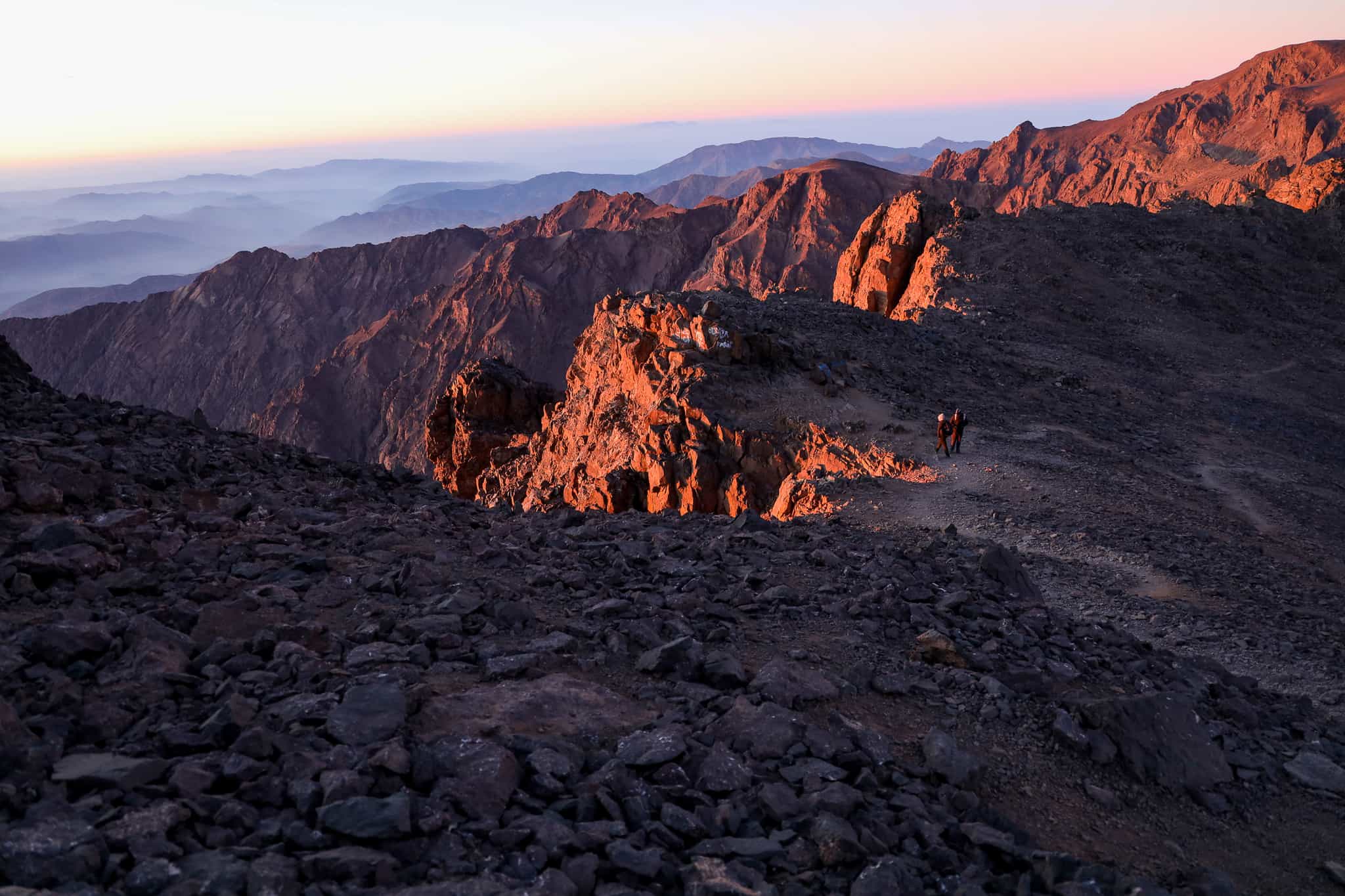
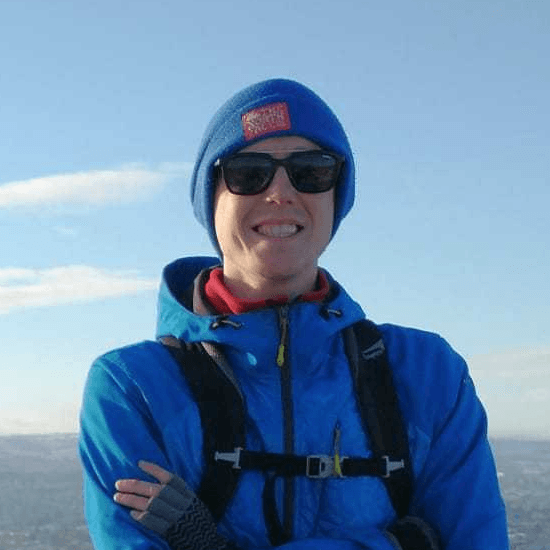
Need help finding flights?
From logistics and how to get there, to fitness, group dynamic and trip difficulty, Rory and his team of friendly experts are on hand to help.
We've got your back
Guaranteed to run
All Much Better Adventures trips are now guaranteed to run. Once you’ve booked your spot you can immediately make your travel arrangements, no uncertainty, no hanging about (excludes 'request to book' departures). Full details
Flexible payments
Secure your spot with the minimum deposit and pay off the remaining balance in as many instalments as you like, with no interest or fees. Full details
Happiness Guarantee
We’re so confident you’ll have an amazing time we’ll put our money on it. Full details
Full financial protection
To give you complete peace of mind Much Better Adventures is backed by ABTOT, ABTA and ATOL memberships. Full details
Tried & Trusted
Much Better Adventures is rated ‘Excellent’ on Trustpilot with over 1000 verified trip reviews averaging 4.8/5.
Connect before you go
You'll be invited to join a WhatsApp group to get to know each other before your big adventure together. Full details
DEPARTURE DATES
Thursday 4th September 2025
to Sunday 14th September 2025
Last Minute Offer - Next 1 spot available at 10% off





